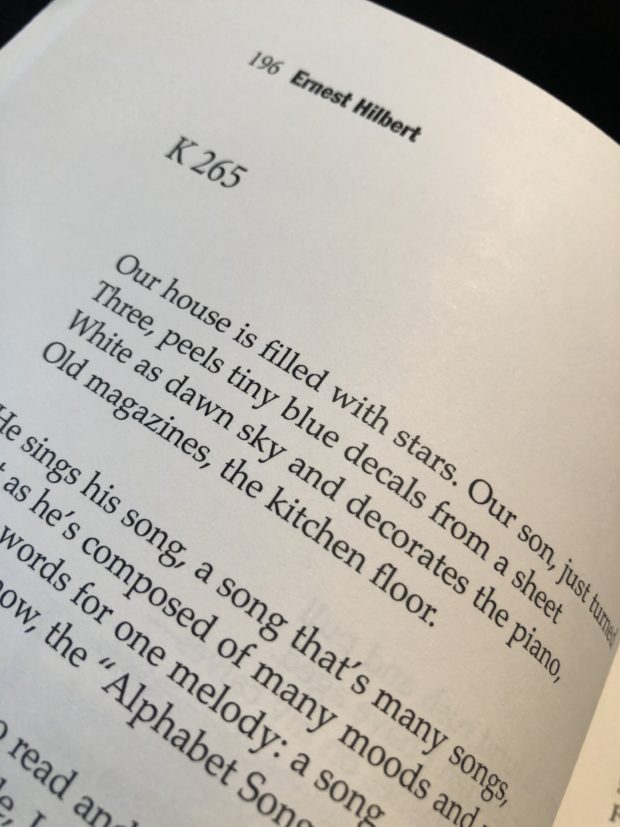My poem “K 265” appears in the latest issue of The Hopkins Review (Volume 13, Number 2, Spring 2020, Johns Hopkins University Press).
Our house is filled with stars. Our son, just turned
Three, peels tiny blue decals from a sheet
Of constellations and decorates the piano,
Literary magazines, the kitchen floor.
He sings his song, a song that’s many songs,
Just as he’s composed of many moods and minds,
Many words for one melody: a song
We all know, the “Alphabet Song,” and so
We’re taught to read and speak, though it’s also
“Twinkle, Twinkle, Little Star,” so we learn
To be at home with forces vastly far away,
“Ah vous dirai-je, Maman”—how briefly
We’re young—and Mozart’s variations
Came true, and “Baa Baa Black Sheep,” all one song.
My son can form from it his own song too
As when he sings himself to sleep each night.
The city’s fogged into a frozen nebula,
Each streetlight a remote sun muffled by mist.
Alpha Centauri, our nearest star,
Is so far that to think about it hurts,
And we’re here, singing in the very heart
Of a heavy star, alone together with music
To warm us, the stars we’re born with
Burning until they’ve used themselves up.
About the Hopkins Review: “This literary gem, the rebirth of a short-lived review from the mid-twentieth century, publishes the finest in contemporary letters. Featuring fiction, poetry, memoirs, essays on literature, drama, film, the visual arts, music and dance, The Hopkins Review has been called a ‘postmodern blend of intellectual heft and Vaudeville’ by Susan McCallum-Smith of WYPR and Urbanite magazine. Contributors include literary and scholarly heavyweights such as Max Apple, John Barth, Donald Barthelme, Millard Kaufman, Frank Kermode, and many others.”
” . . . the voice most characteristic of Mr. Hilbert’s work sounds something like a punk-rock Wordsworth, or a heavy-metal Milton, melding grandeur and the Grand Guignol, squalor and prophecy, in a kind of snarling sublime. In Caligulan, this voice fulfilled its potential: trash, noise, madness, death, and chaos create a kind of ambient howl, like a vortex within which characters flung hither and thither frantically try to make sense of their lives. The effect is at once uncanny and undeniably familiar. Reading Caligulan is something like walking the neighborhood while listening to the second movement of Shostakovich’s String Quartet No. 8 on repeat.” – The Hopkins Review



No Comments